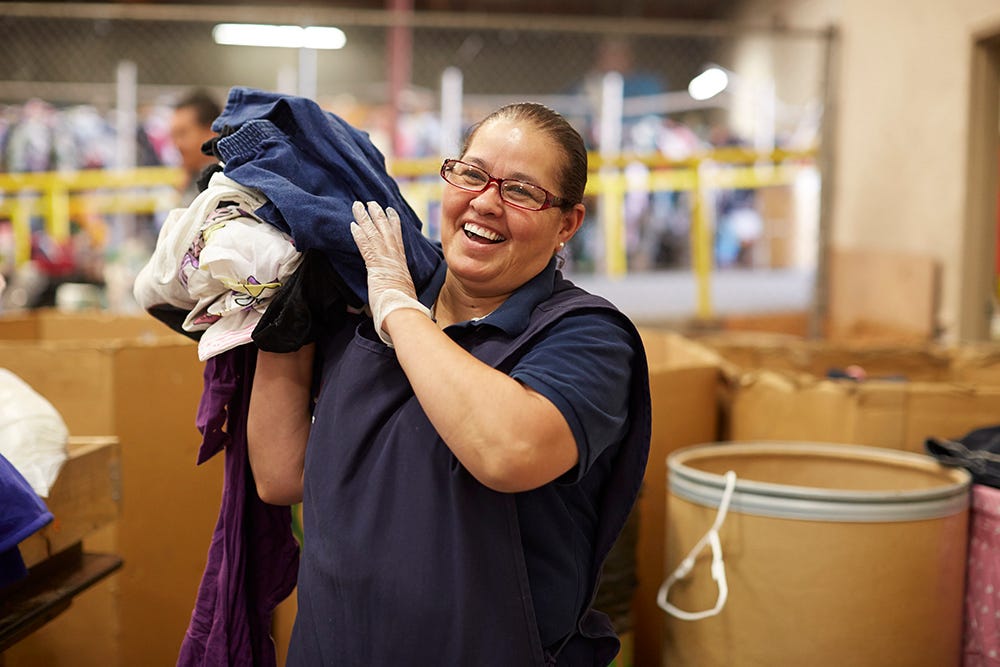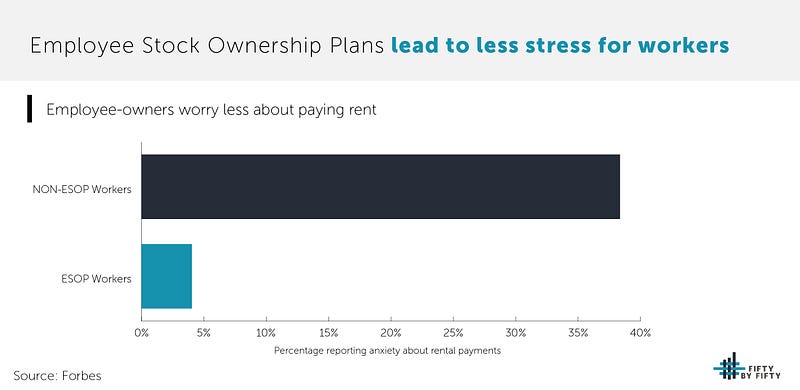Employee-owners are more confident about their financial security.
by Erin M. Kesler

At a time of growing anxiety around economic issues for many workers, recent news indicates that employee owners are experiencing significantly less stress. According to a recent Forbes piece, employee owners have far fewer worries about paying their monthly bills than workers at other firms. While 38 percent of workers not in an Employee Stock Ownership Plan (ESOP) reported worry about ability to pay the rent, only 4 percent of employee-owners had that concern.
Employee ownership affords average Americans the stability required to live free of anxiety associated with medical emergencies, eviction, and low wages.
The piece reported on a John Zogby Strategies survey, noting that Zogby researchers benchmarked their survey of 3,415 employee-owners against an October 2016 Marketplace-Edison Research ‘Economic Anxiety Poll,’ which was taken before the 2016 U.S. presidential election. The report suggests that employee owners have reduced anxiety likely in part due to the greater transparency associated with ESOPs. That is, owners have greater insights into the financial health of their company than at other businesses. Employee owners also have much healthier retirement savings and higher wages. Employee ownership affords average Americans the stability required to live free of anxiety associated with medical emergencies, eviction, and low wages.

This news stands in marked contrast to the situation faced by other workers. According to a Go Banking Rates survey released last week, more than half, 57 percent, of all Americans have less than $1,000 in their bank account. The findings are in line with a Federal Reserve survey last year that found that about 46 percent of Americans do not have $400 to cover an emergency, like a medical or transportation-related expense. A recent census bureau report found that household incomes for the poorest fifth of households fell by $571 over the decade that ended last year, adjusting for inflation. Over the same period, the average income for the wealthiest fifth of households rose by $13,479.
As economic inequality continues to grow in the United States, stress-related illnesses are rampant. Economic precariousness increases stress, contributing to a host of stress-related diseases like depression, anxiety, heart attacks, diabetes, gastrointestinal problems and asthma.
“It takes a job to get out of poverty, but it takes assets to stay out of poverty,” Kelly said.
As Democracy Collaborative Vice President Marjorie Kelly notes in a recent podcast with the Next System Project, “Think about this. You break your ankle, your tire goes flat, your kid needs a school band uniform. You can think of a million reasons someone might need $400. To think that many Americans cannot put together $400, that’s scary. You would live in a state of economic anxiety pretty much all the time. That’s a terrible quality of life.” Kelly went on to note that “Most of us don’t think about assets. Most of us don’t understand the difference between income and assets.” Assets — like ownership shares in a company — represent something that has enduring value and that can increase in value over time, generating wealth. As John Barros, head of economic development for the city of Boston, once put it, “It takes a job to get out of poverty, but it takes assets to stay out of poverty,” Kelly said.
Employee-owned companies are an important and often overlooked avenue for ordinary Americans to accumulate assets that improve their quality of life. As the evidence of the John Zogby Strategies survey shows, employee owners feel more confident in their economic security compared to non-employee owners.
